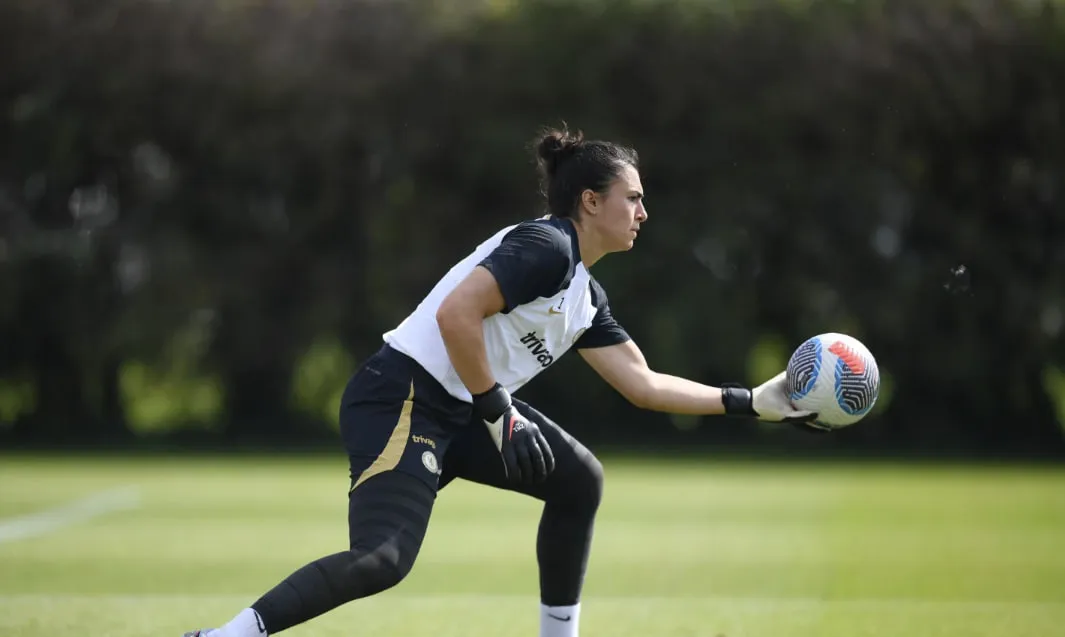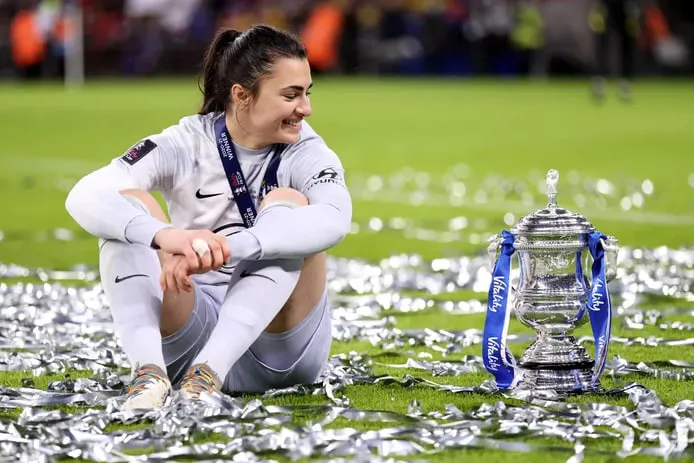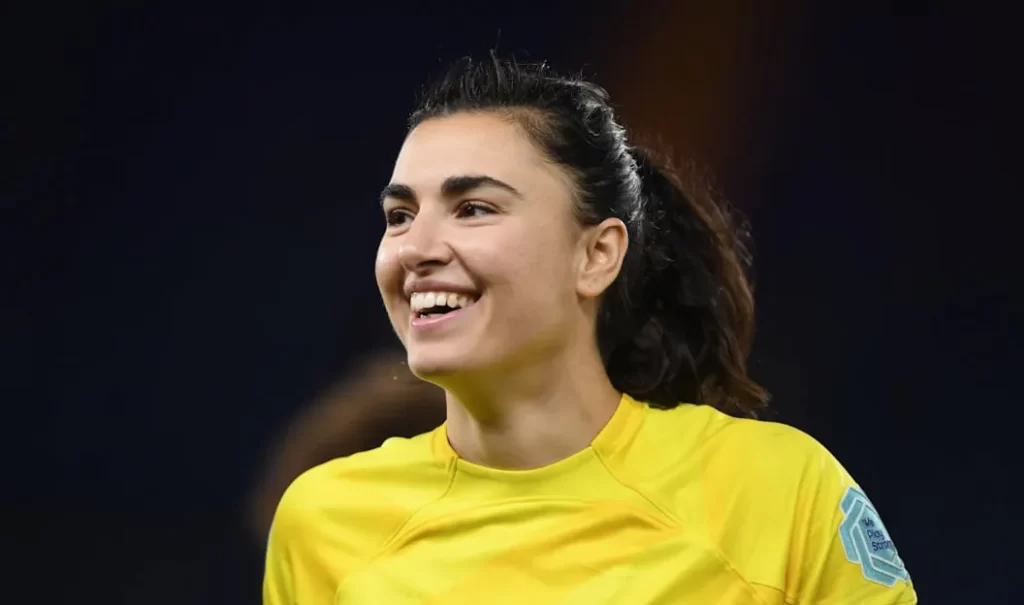In the high-stakes world of professional football, few positions carry the weight of expectation quite like the goalkeeper. Every save is celebrated, every error magnified, and the competition for that solitary spot between the posts is relentless. At Chelsea Women, this pressure-cooker environment has forged a remarkable athlete in Zecira Musovic, whose psychological resilience may well be the secret weapon in the Blues’ unbeaten campaign under new manager Sonia Bompastor.
While Hannah Hampton holds the primary starting role in Women’s Super League matches, Musovic has emerged as Chelsea’s cup specialist and a goalkeeper whose mental fortitude sets her apart. The Swedish international’s approach to handling pressure provides a fascinating blueprint for athletes navigating the psychological demands of elite sport.
The Psychology of Elite Performance
Musovic‘s journey to mental toughness began remarkably early in her career. “I started working with a psychologist when I was 16 years old,” she revealed in an exclusive interview with Melbet. “Not because I was struggling, but because I wanted to gain tools to understand myself better – how I function in different situations so when those challenging moments arrive, I know exactly how to handle myself.”
This proactive approach to mental conditioning has proven invaluable throughout her career. The 28-year-old goalkeeper acknowledges that professional football isn’t “always sunshiny days,” but her psychological preparation allows her to thrive when the pressure intensifies. “I know that I’m really good under pressure,” Musovic states with conviction. “I think that’s when I shine the most.”

Innovative Training Methods
Musovic‘s commitment to improvement extends beyond traditional training methods. She has incorporated BlazePod – a system of light pods that test reaction times and spatial awareness – into her regimen to enhance cognitive function.
“We don’t talk enough about the brain as a muscle and how we can improve that,” Musovic explains. “Goalkeeping is fundamentally about how quickly you can make decisions and how accurate those decisions are. BlazePod helps me work on the cognitive piece of my game that’s so crucial.”
This innovative approach to training reflects a growing trend in women’s football where marginal gains – both physical and psychological – are becoming increasingly important in a rapidly evolving sport.
The Chelsea Mentality Under Sonia Bompastor
Chelsea’s winning culture has been well-documented, but Musovic provides unique insight into how new manager Sonia Bompastor has maintained and enhanced this environment. “Sonia is a coach who’s really intense,” Musovic shares. “She’s a winner, she’s ambitious, she knows what she wants, and she’s very demanding. I love all of those attributes.”
The Chelsea squad maintains what Musovic describes as a forward-looking mentality: “We don’t think about past victories as something that’s going to lead us to the next one. You have to put in the work, stay humble, and keep challenging yourself daily because if we don’t do that, someone else will – and we hate losing.”

Planning for Life Beyond Playing
Musovic‘s analytical approach extends to planning for her post-playing career. She is currently undertaking her UEFA A license alongside notable players like Beth Mead and Steph Houghton in the first all-female cohort – an initiative she praises as progressive thinking by the English FA.
“Coaching and goalkeeping are actually similar if you’re playing for a winning team because you stand there and see the whole picture,” Musovic observes. “The course has helped me gain a bigger understanding of the game and how you can really coach your team.”
While she hasn’t fully committed to a coaching career, Musovic is considering various leadership roles: “I see myself in management of the game, whether that’s being a sporting director, general manager, or head coach. I’m passionate about building a team and reaching the full potential of individuals within it.”
The Road to Euro 2025 and Beyond
With Euro 2025 approaching, Musovic is also focused on her international duties with Sweden. She offers a realistic assessment of their chances: “Sweden are never really favourites against nations like England, France, Germany, or Spain. But in tournaments, we come together and find a way of being a really high-performing team because of our culture.”
She emphasizes the collective strength of the Swedish team: “We don’t work as individuals, we work as a team, and that’s really important in tournament football where you have to quickly get on the same page and perform at your best in a short period.”
The Big Match: Chelsea vs Arsenal
This weekend’s clash against Arsenal represents another test of Chelsea’s mentality and Musovic‘s readiness. “It will be an interesting one,” she predicts. “They have a squad at the same level as ours with amazing players. They’ve managed to click now after some early-season adjustments.”
The match also represents the continued growth of women’s football that Musovic finds particularly rewarding. “We love playing at Stamford Bridge with the crowd behind us. To be selling out stadiums now is such an amazing and proud feeling after years of playing in front of just a few people – maybe mum and dad.”
As Chelsea continues their unbeaten run, Zecira Musovic stands as a testament to the power of mental strength in elite sport. Her journey from proactive psychology work as a teenager to embracing innovative training methods and planning for leadership roles beyond playing demonstrates the multidimensional approach required at the highest level of women’s football. For more insights and analysis on women’s football, stay tuned to Melbet for expert coverage.

